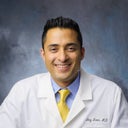Could dry mouth be a result of neck lift/facelift?
Ever since my surgery 4 months ago the inside of my lips have felt strange and dry. Could there be a connection?
Ever since my surgery 4 months ago the inside of my lips have felt strange and dry. Could there be a connection?





What’s trending? Who’s turning heads? Which TikTok myths need busting? We’ve got you. No fluff, no gatekeeping—just real talk. Get our free, unfiltered newsletter.